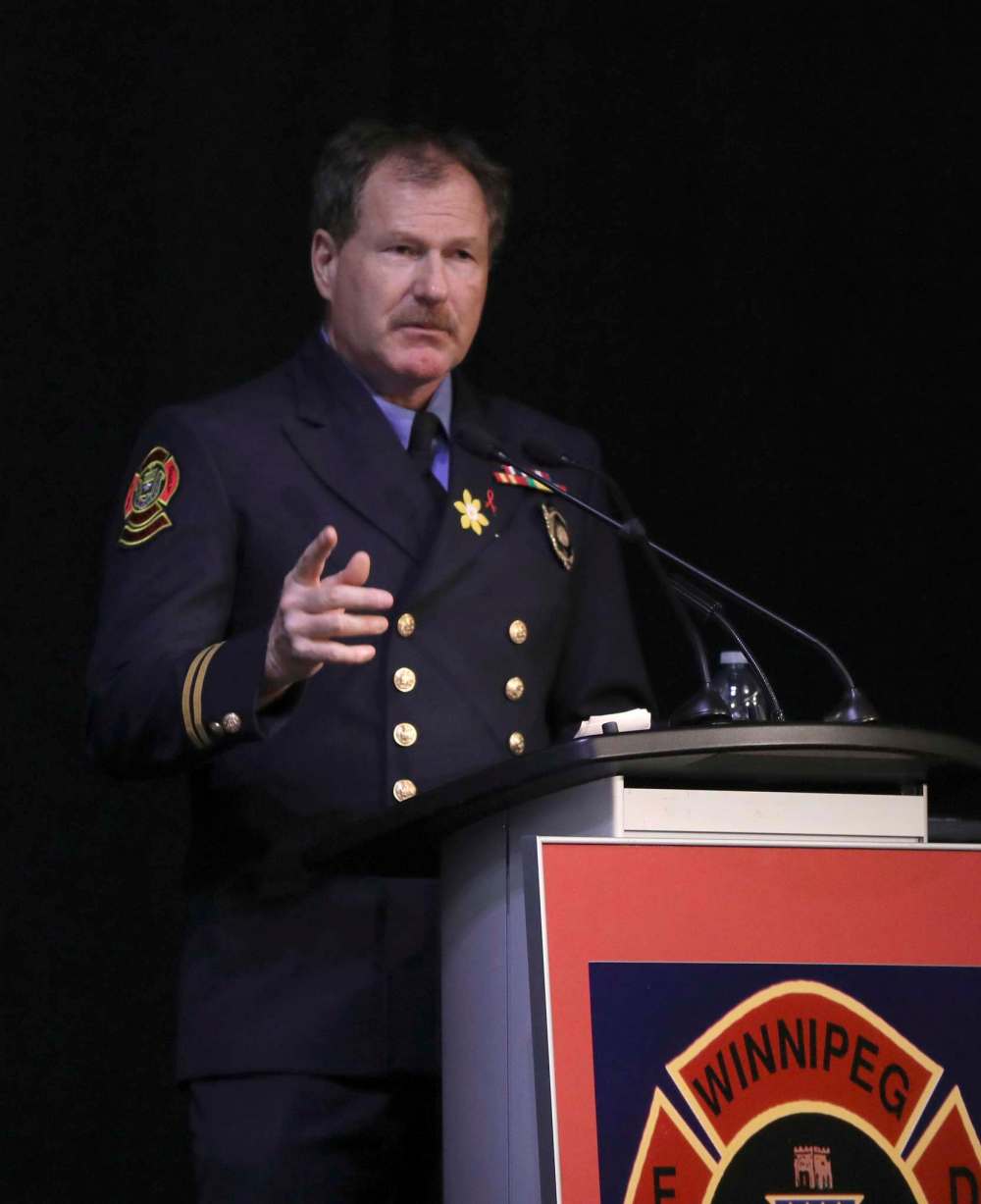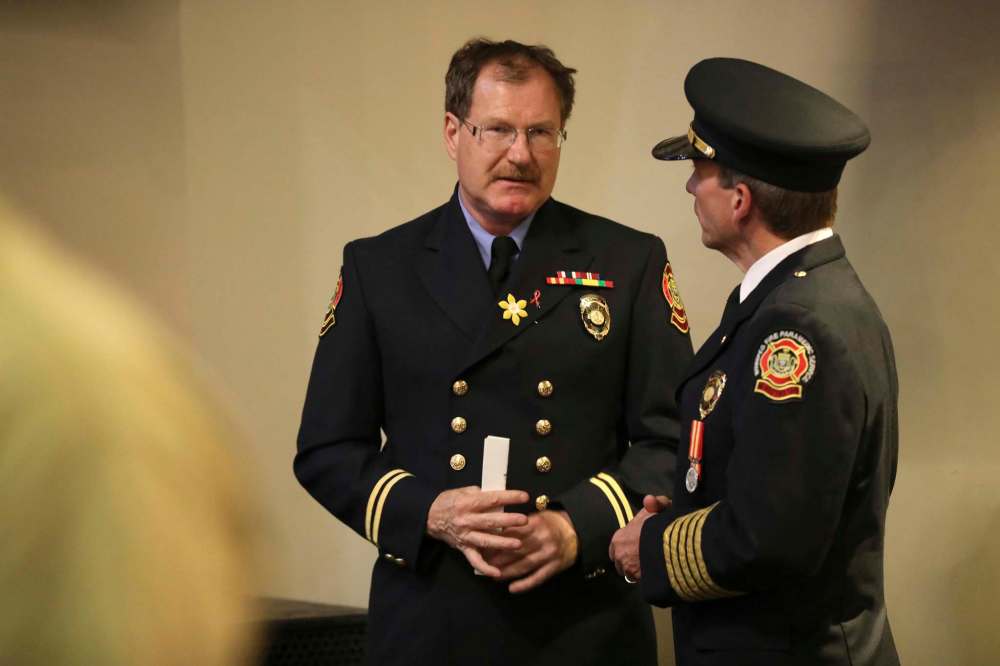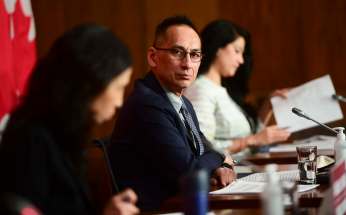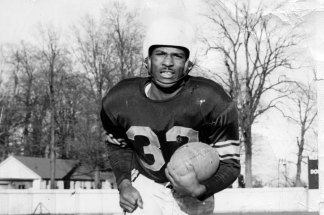Union leader fails to see his salary subsidy alienates taxpayers
Read this article for free:
or
Already have an account? Log in here »
To continue reading, please subscribe:
Monthly Digital Subscription
$0 for the first 4 weeks*
- Enjoy unlimited reading on winnipegfreepress.com
- Read the E-Edition, our digital replica newspaper
- Access News Break, our award-winning app
- Play interactive puzzles
*No charge for 4 weeks then price increases to the regular rate of $19.00 plus GST every four weeks. Offer available to new and qualified returning subscribers only. Cancel any time.
Monthly Digital Subscription
$4.75/week*
- Enjoy unlimited reading on winnipegfreepress.com
- Read the E-Edition, our digital replica newspaper
- Access News Break, our award-winning app
- Play interactive puzzles
*Billed as $19 plus GST every four weeks. Cancel any time.
To continue reading, please subscribe:
Add Free Press access to your Brandon Sun subscription for only an additional
$1 for the first 4 weeks*
*Your next subscription payment will increase by $1.00 and you will be charged $16.99 plus GST for four weeks. After four weeks, your payment will increase to $23.99 plus GST every four weeks.
Read unlimited articles for free today:
or
Already have an account? Log in here »
Hey there, time traveller!
This article was published 19/02/2021 (1752 days ago), so information in it may no longer be current.
There is one piece of advice, above all others, that just about every comedian, musician and politician has been given at one time or another.
Read the room.
This phrase is shorthand for “take the time to consider whether anything you say or do will be appropriate for your audience.” It’s sage counsel that Alex Forrest, the president of the United Fire Fighters of Winnipeg, should really take the time to consider.

During his nearly 25 years with the union, Forrest has proven himself to be a maverick who is willing to tussle with anyone and everyone. Although that has earned him a lot of loyalty from firefighters, it has also brought unwanted attention to the UFFW.
Earlier this month, Forrest was criticized for failing to denounce systemic racism in the wake of an independent investigation of an incident in which two firefighters refused to provide medical attention to an Indigenous woman.
Forrest followed up that act of political tone-deafness with some incredible statements about the UFFW’s current contract talks with the city. Forrest claims the city missed a deadline last October to submit its proposals for a new contract, and now has lost its opportunity to introduce any issues for bargaining.
“There are consequences to that disaster of its own making,” Forrest said in a deft bit of hyperbole mashup.
On the other side, the city has not said much about the missed deadline. It disputed the notion that any deadline was missed but the person in charge of contract negotiations for the city did resign suddenly after the UFFW raised the issue.
But even if there was a missed deadline last fall, does it mean the city is not allowed to make a single proposal in a negotiation that hasn’t progressed very far?
According to a canvass of senior public-sector union officials, some of whom have sat at bargaining tables with the city, there are very few scenarios in which an employer would be prohibited from submitting proposals. On that basis, it seems likely the city will have its proposals become part of the negotiations.
Why would Forrest take such a hard line with the city, particularly one that falls so far out of the normal course of collective bargaining? Strip away the rhetoric and you have a full-time union president laying claim to hundreds of thousands of dollars in taxpayer money that his union is not morally entitled to receive.
Why would Forrest take such a hard line with the city, particularly one that falls so far out of the normal course of collective bargaining?
As many Winnipeggers know, many years ago the UFFW won a very unusual contract provision that required taxpayers to pay all of Forrest’s six-figure salary as a full-time union president. The provision drew the ire of Mayor Brian Bowman and much of council. In June 2018, when council voted to seek an end to the deal, taxpayers were covering 60 per cent of Forrest’s salary.
All of the other public-sector unions the city deals with use their own resources to pay the salaries of full-time presidents. For those who are part time, the union reimburses the city for all time spent on union business.
The UFFW’s deal on Forrest’s salary is not just different than other public-sector union, it’s untenable bordering on offensive.
Bowman had already served notice he would make it a priority to end this provision in the current contract negotiations. In the wake of that threat, Forrest’s attempts to block city proposals makes sense. If the city isn’t allowed to make a proposal, then Forrest can keep his salary subsidy from taxpayers.

However, in his desperate bid to limit the city’s bargaining authority, Forrest is definitely demonstrating he doesn’t know how to read a room.
All public-sector unions have, first and foremost, an obligation to fairly and fully pursue the interests of their members. But all unions, public-sector unions in particular, must always consider how their demands and priorities play in the broader court of public opinion.
All other public-sector unions have the good sense to dig into their own treasuries to cover the salaries of full-time officials.
Although there is no way to conclusively measure public opinion on Forrest’s salary rebate, it wouldn’t be unfair to suggest it isn’t particularly popular with the gross majority of taxpayers. All other public-sector unions have the good sense to dig into their own treasuries to cover the salaries of full-time officials.
On many levels, the UFFW has always shown it recognizes the importance of earning and keeping public confidence. The union lays out significant sums of money each year to promote itself and its members on radio, television and — when NHL hockey was still a thing — at Winnipeg Jets games.
These advertisements are a clear effort to build a brand worthy of public trust so that when the UFFW raises an issue about workplace safety, benefits or wages, it can count on taxpayers’ support.
Unfortunately, as is always the case when a union official can’t read the room, the UFFW brand is vulnerable to being tarnished by Forrest’s desperate attempt to keep something that — by all precedents and reasonable measurements — the UFFW president was not entitled to get in the first place.
After 25 years at the helm of the UFFW, Forrest is clearly confident he has the support of rank-and-file firefighters. What is less clear is whether firefighters, by allowing their union president to pursue an unjustified subsidy for his salary, will continue to enjoy the support of rank-and-file taxpayers.
dan.lett@freepress.mb.ca

Born and raised in and around Toronto, Dan Lett came to Winnipeg in 1986, less than a year out of journalism school with a lifelong dream to be a newspaper reporter.
Our newsroom depends on a growing audience of readers to power our journalism. If you are not a paid reader, please consider becoming a subscriber.
Our newsroom depends on its audience of readers to power our journalism. Thank you for your support.








